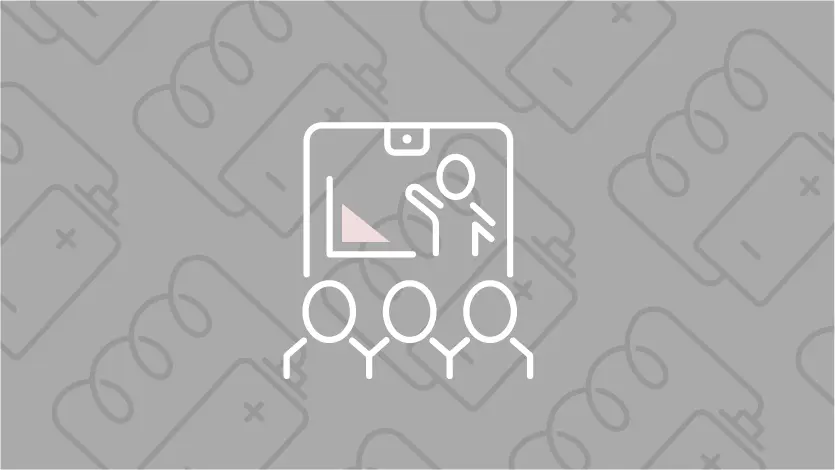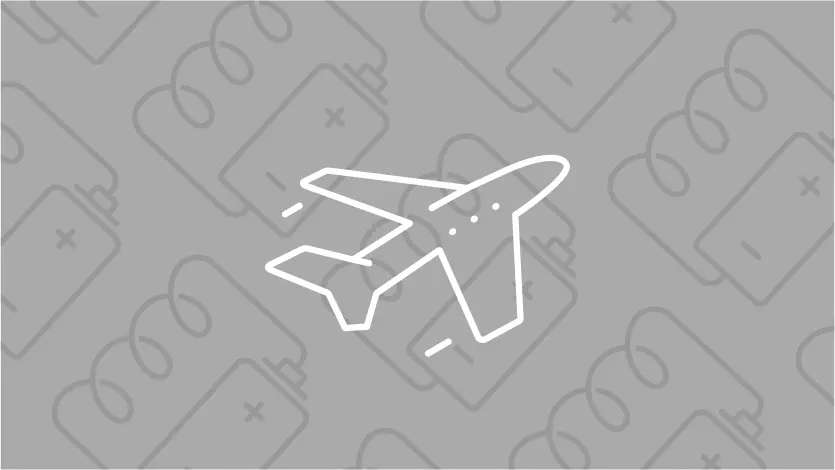
|
EAE1002 |
Aircraft Electrical Fundamentals
This subject provides you with broad-based knowledge on electrical theories, components and devices. It also covers electrical machines. In addition, you will be equipped with the knowledge that is expected under the Singapore Airworthiness Requirements (SAR-66) standard, so that you will be competent in getting your aircraft maintenance certification later on.
|
5 |

|

|
EAE1008 |
Aircraft Electronics & Digital Systems
This subject covers the basics of semiconductors, printed circuit boards, servomechanisms, electronic instrument systems, logic circuits, fibre optics, electronic displays, electronic sensitive devices, electromagnetic environment and digital aircraft systems. The depth of coverage will adhere to the requirement of SAR-66 (Category B1) for M4 - Electronic Fundamentals and M5 - Digital Techniques/Electronic Instrument Systems.
The aims of this subject are to equip students with the knowledge and skills to:
- use and work with synchros and resolvers in servomechanisms
- identify the layout of electronic/digital aircraft systems in modern wide transport aircraft
- understand the electronic fundamental theory in modern board aircraft electronic instrument systems as required by the SAR-66 Module 4 and 5 (Category B1) of the Civil Aviation Authority of Singapore
- pass the M4 and M5 (Category B1) examinations
|
4 |

|

|
ESE1009 |
Artificial Intelligence in Engineering
This subject will cover the key concepts of Artificial intelligence (AI), Generative AI, and foundation models to prepare engineers for a future where AI applications will be pervasive. It will include considerations for the ethical and safe use of AI, as well as the impact of AI on engineering applications through real-world case studies. It will also cover essential AI techniques and Prompt Engineering skills, providing the foundation to leverage on AI for innovative solutions in engineering domains. The subject will provide skills practice for applications of AI for data augmentation, data analysis, prototyping and simulation, problem-solving and optimisation.
|
2 |

|

|
EAE2002 |
Aviation Legislation & Human Factors
The subject provides basic knowledge and understanding of aviation legislation and human factors for ab initio engineers studying for their Singapore Airworthiness Requirements (SAR-66) aircraft maintenance licences. Knowledge of this subject has a significant impact on the safety standards expected of an aircraft maintenance engineer.
|
4 |

|

|
EAE3009 |
Basic Aerodynamics
This subject introduces the principles of aerodynamics and flight controls. It is designed to give a good balance between theoretical knowledge with applications using classroom lessons, wind tunnel and computational fluid dynamics experiments. The syllabus includes all topics in the Singapore Airworthiness Requirements (SAR-66) Module M08 on Basic Aerodynamics”.
|
3 |

|

|
ESE1008 |
Data Visualisation & Analytics
This subject covers the data analytics lifecycle, including gathering, cleaning, processing and visualising of data. Exploratory data analysis methods, descriptive and predictive analytics, and the presentation of insights, will also be covered.
|
3 |

|

|
EME2006 |
Engineering Materials
This subject will equip you with fundamental knowledge and practical skills to evaluate, process and inspect common aircraft materials, thereby building up your capability in detecting and testing surface defects in actual applications. You will be able to develop the knowledge and skills in the designing and selection of materials, as well as in supporting key processes to optimise the performance of aerospace components.
|
4 |

|

|
EMA2003 |
Engineering Mathematics 3
This subject introduces Ordinary Differential Equations (ODE). In particular, it focuses on the formulation of engineering problems into first and second order differential equations. Some techniques in solving ODE and the applications of ODE will be discussed, including the use of Laplace Transforms and the calculation of Fourier series.
|
4 |

|

|
EME2010 |
Fluid Mechanics
This subject provides students with fundamental knowledge in applied mechanics of fluids under incompressible viscous flow condition. It covers fluid properties, fluid statics, fluid in motion, governing equations, viscous flow through duct, minor losses, multiple-pipe system, drag and lift, and compressible flow.
|
3 |

|

|
EAE3008 |
Gas Turbine Engine
This subject equips you with knowledge of aircraft propulsion methods, thermodynamic cycles, combustion and thermochemical analysis, reciprocating engines, gas turbine and jet engines, effects of atmospheric variations (temperature, density, pressure altitude) on engine and on engine/aircraft combination, auxiliary systems (such as fuel system, lubrication system, ignition, starting, fire protection, auxiliary power unit), and current developments in propulsion systems. The syllabus is equivalent to the Singapore Airworthiness Requirements (SAR-66) Module M15 on Gas Turbine Engine.
|
4 |

|

|
EME2008 |
Principles of Dynamics
The application of dynamic systems theory can be seen everywhere in our daily lives, from vehicles moving on the road to planes flying in the air. In this subject, you will learn learn the fundamental principles of dynamics and apply them to the analyses of bodies in motion. The objective is to present the foundation and applications of dynamics. The main topics covered include Newton’s laws of motion, the principle of work and energy, the principle of impulse and momentum, and the motion of projectiles.
|
5 |

|
/eng-t51.webp)







/eng-t51-1.webp)
/eng-t51-2.webp)
/eng-t51-3.webp)
/AEG-Hur-Sin-Haeng(sm).webp)
/AEG-jackweel.webp)
/AEG-Bryanphang.webp)
/eng-t50-tn.webp)
/eng-t04-tn.webp)
/eng-t56-tn.webp)



